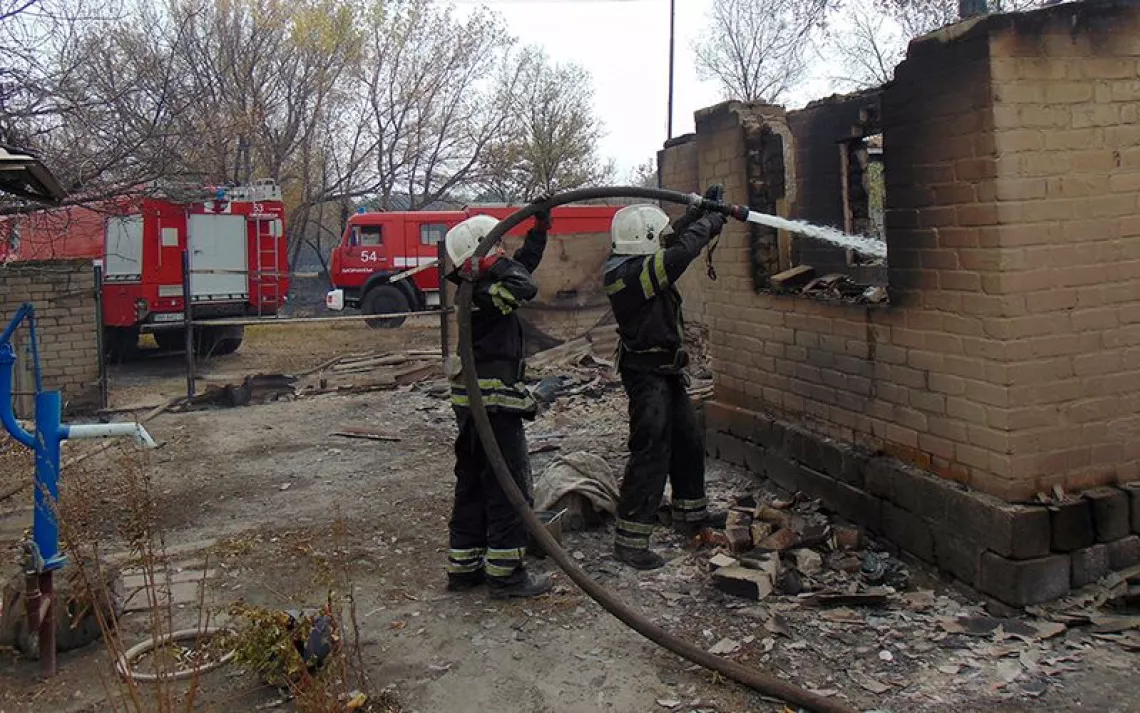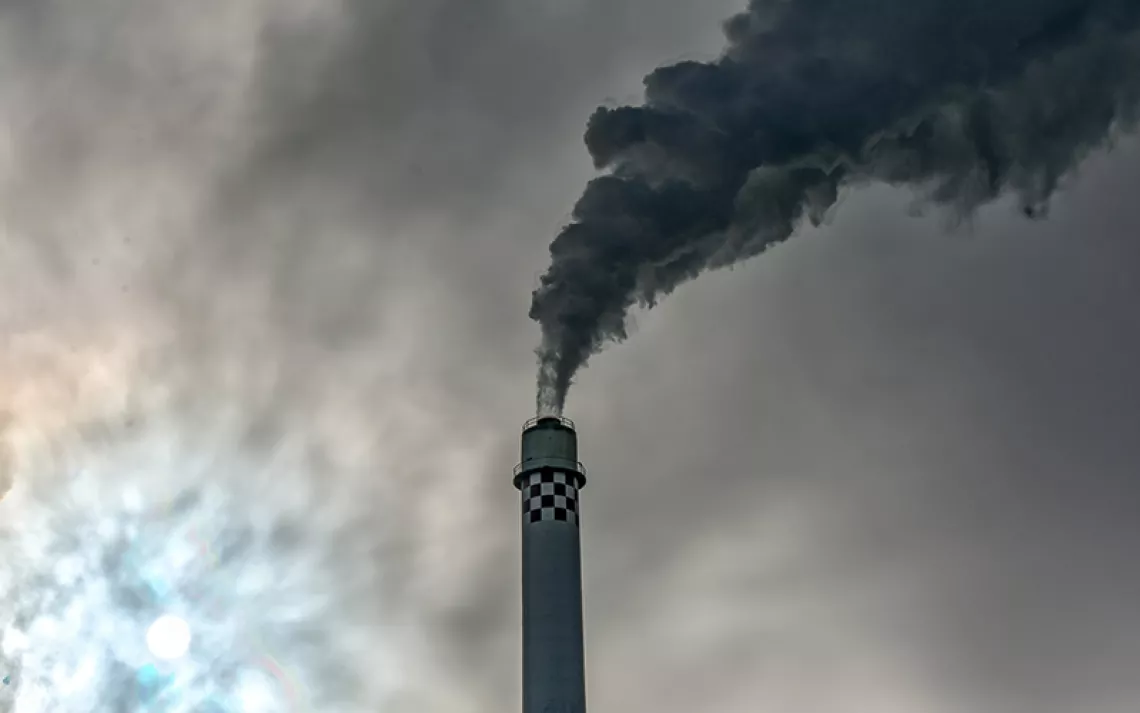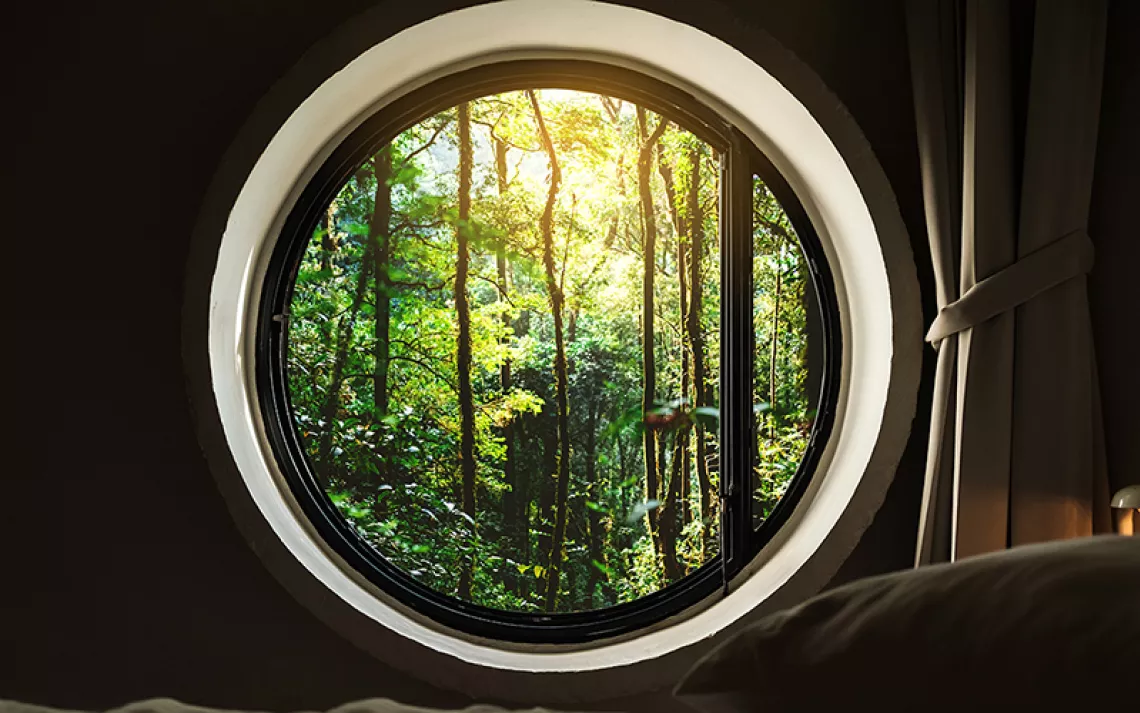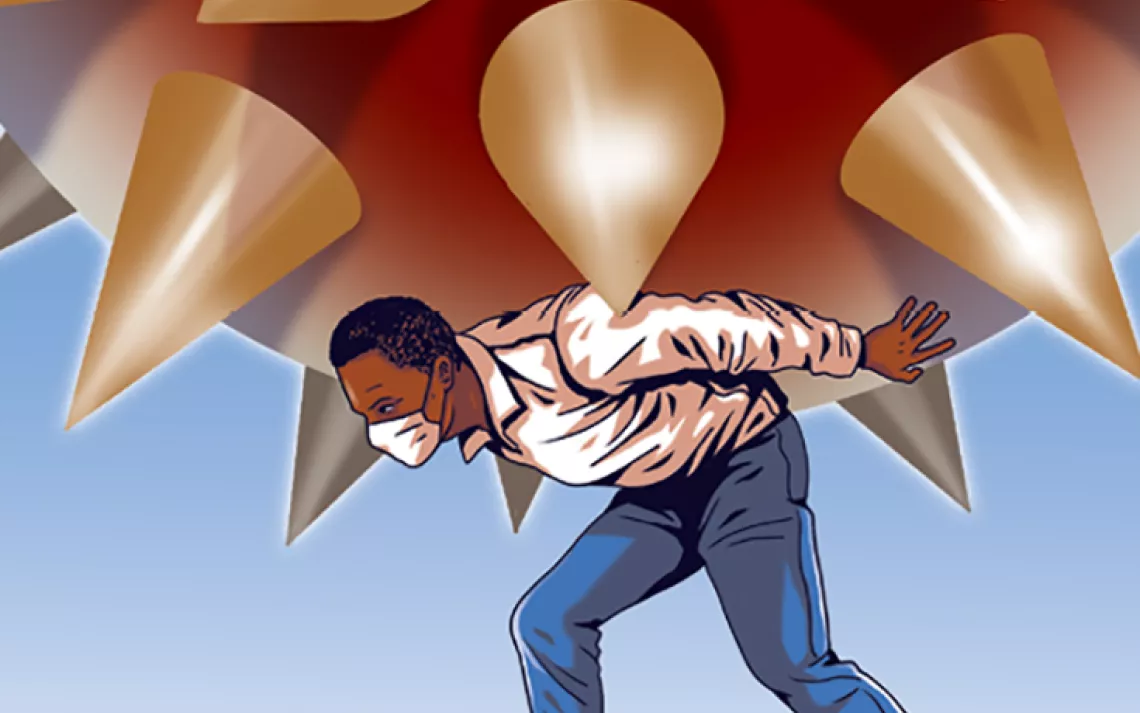Hitched to Nature
The pandemic has illustrated how connected humans are to wildlife
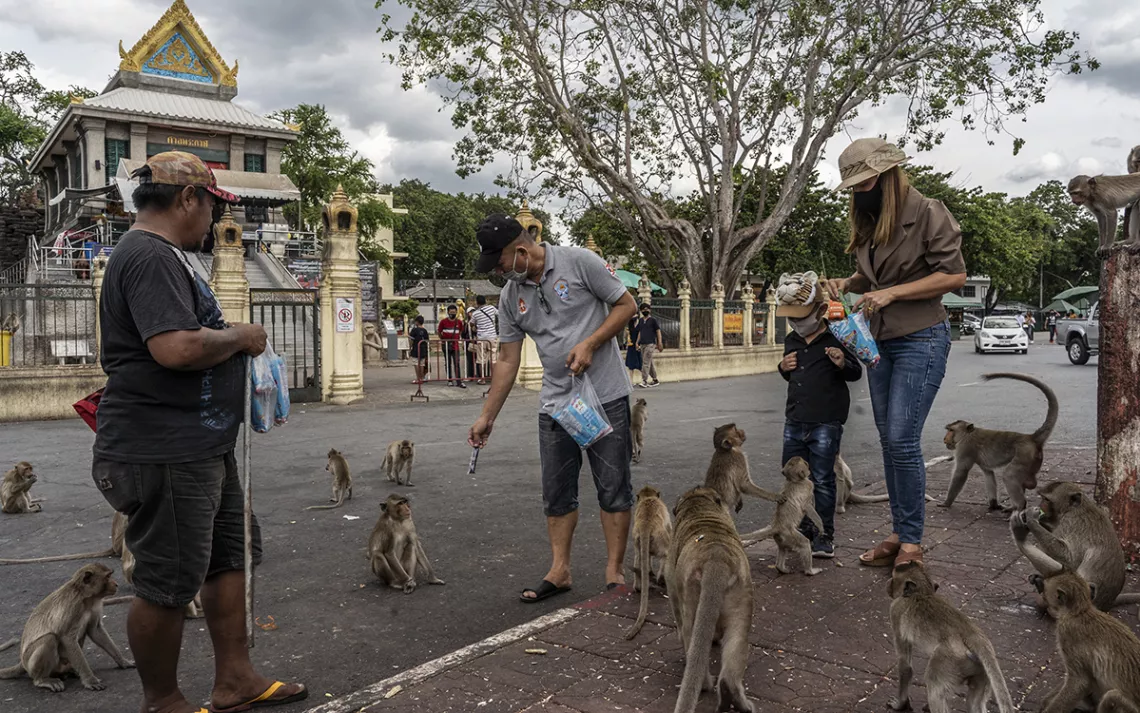
People hand-feed macaques on a street in Thailand. | Photo by Adam Dean/The New York Times/Redux
The woods and the mountains and the seashores were packed with people last summer. With the entertainments of movie theaters and malls still shut down or restricting access because of the pandemic, a lot of folks turned to the old-fashioned amusements provided by wild nature. Across the country, parks reported a spike in visitation compared with recent years. Reconnecting to the great outdoors turned out to be the ideal escape for people fearful of staying indoors.
The critters, I imagine, must have noticed the racket—especially after a spring in which it seemed as if Homo sapiens had disappeared. In the first months of the pandemic, as civilization slowed down and went quiet in an effort to contain the novel coronavirus, wildlife in some places began a tentative (and brief) recolonization of human-dominated habitats. A mountain lion stalked the empty streets of San Francisco, and javelinas tore through Phoenix. Bears, deer, and bison reclaimed the deserted precincts of the national parks. The reappearance of wild animals offered a poignant illustration of humans' vexed relationship with wildlife, a reminder that our mere presence and sheer numbers affect other beings' lives, even though we humans usually ignore such bonds.
In "Nature Is Returning," wildlife journalist Rachel Nuwer details one more way in which the pandemic has revealed our interconnection with animals: The coronavirus originated in another species. Scientists aren't yet sure which—maybe it was a bat, or perhaps a pangolin. They largely agree, though, that human activities played a role in allowing the virus to jump the species barrier. When we destroy wildlands to make space for farms and pastures or when we capture and trade wildlife species, we increase the chances of zoonotic epidemics.
I know it's best to be careful about projecting meaning onto natural phenomena. A virus is just a virus, a bat just a bat. Yet I keep thinking that all of this is of a piece. The coronavirus's origin in human recklessness, the animal reappearance during the first weeks of sheltering in place, and the summertime surge of people into the outdoors are connected. The idea that everything is connected is, famously, the original insight of ecology, and now the pandemic has made that fact plain. We have found that we aren't simply hitched to everything else. We humans are bonded to the rest of life on Earth, tethered in a web that can offer terror and disease as well as joy and wonder.
It's become a cliché of 2020 that the pandemic will change everything forever. Nuwer is skeptical: "Most individuals, once a vaccine finally arrives and the pandemic fades into memory, will probably return to the approach to nature they held before." I appreciate her caution, but my heart can't help but hope. I still want to believe that the pandemic may yet serve as a revelation for civilization, a long-overdue wake-up call to snap us out of our daydream of human supremacy. The wild animals are still out there, returned to hiding, and the viruses too, ready to evolve. I'd like to think the pandemic may force us to appreciate that persistence, the intimacy of such intertwinements. The animals, the microbes, and us—we're all related.
This article appeared in the November/December 2020 edition with the headline "Hitched to Nature."
 The Magazine of The Sierra Club
The Magazine of The Sierra Club
